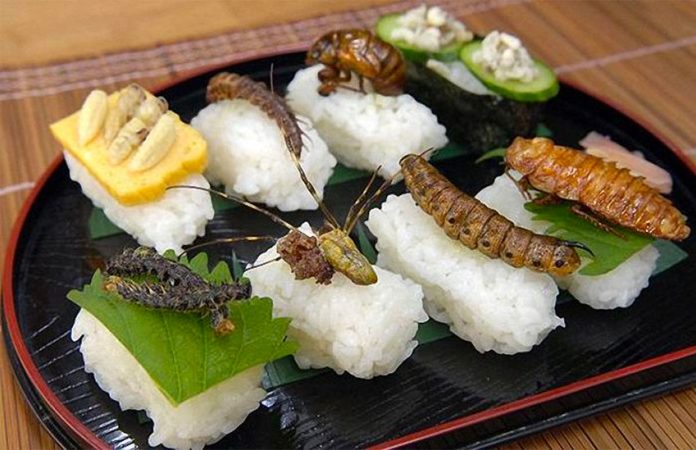Interested in exploring gastronomic opportunities in the insect world? An upcoming exhibition will probably provide all the necessary information.
“The Art of Eating Insects” opens at Mexico City’s San Ildefonso College on October 9 to highlight communities that consume insects, as well as the history and future sustainability of the practice.
It will include 180 pieces from 23 research collections, including scientific illustrations, paintings, historical objects, photographs, video and mixed media presentations.
Also on display will be many specimens of insects eaten in Mexico, such as grasshoppers, atta ants (as in leaf-cutters), honey ants, escamoles (ant eggs), chicatanas (flying ants that appear after the first rains) and aquatic bugs called ahuautle, among others.
A press conference held to announce the event was told there are 1,950 edible insects in the world, of which Mexico incorporates 545 into its cuisine as part of traditional diets.
San Ildefonso expositions curator Carmen Tostado Gutiérrez said the idea for the exhibit came from talks with the National Commission for the Knowledge and Use of Biodiversity (Conabio) about Mexico’s cultural heritage and a growing interest in eating insects.
Its goal, however, is to create historical and ecological awareness of what we eat.
“It’s more than an invitation to eat insects,” said Tostado, “it’s about knowing where this culinary tradition comes from, how it was created throughout the course of history . . . It’s more of an invitation to reflect on what we’re eating and the impact it has on the environment, questioning our role, consumption and personal attitudes on a daily basis.”
San Ildefonso executive coordinator Eduardo Vásquez Martín highlighted the exhibition’s goal as a tribute to the environment and to show the public the role insects play in it. He hopes the exhibit will encourage more people to try Mexican insect recipes.
The exhibition will also have illustration workshops for children, courses for the general public and 3-D insect modeling classes, all with the goal of contributing to the solution of environmental degradation.
It will run Tuesdays through Sundays from 10:00am to 6:00pm until February 2.
Source: El Universal (sp)
